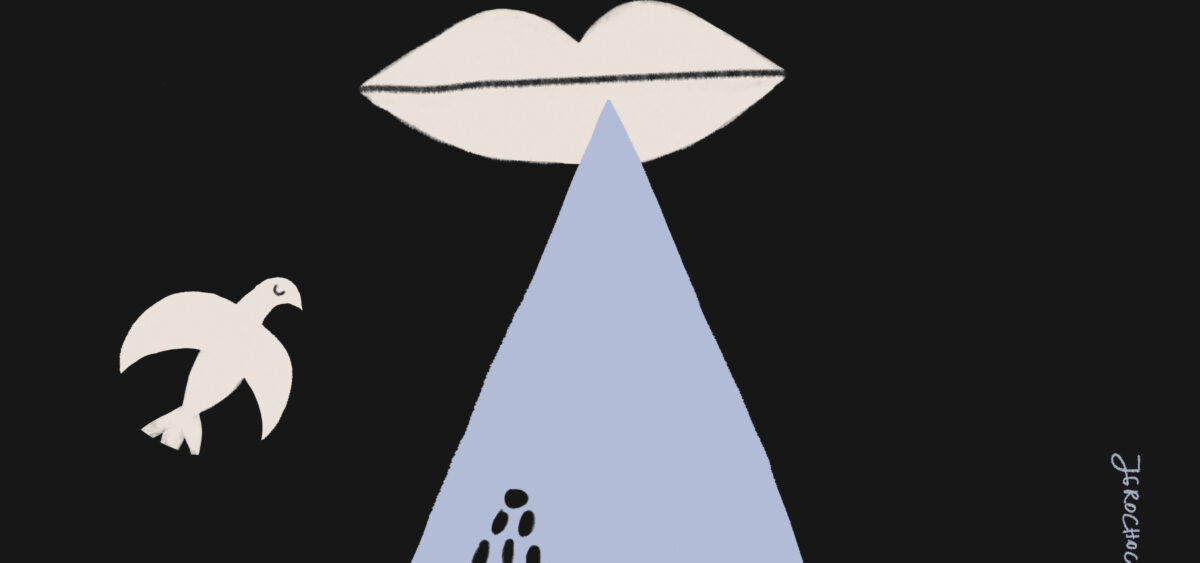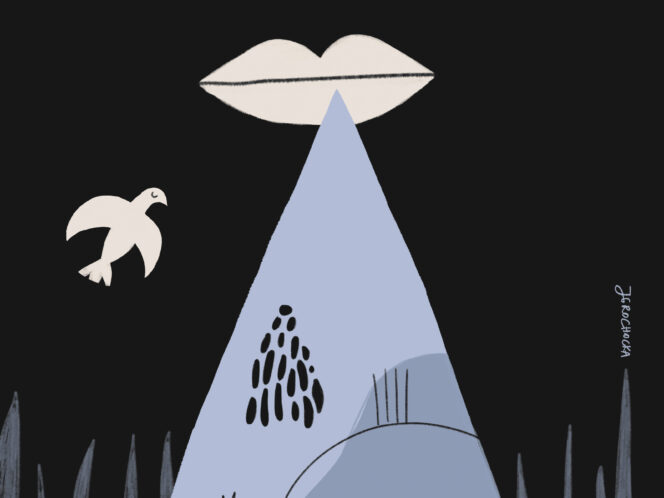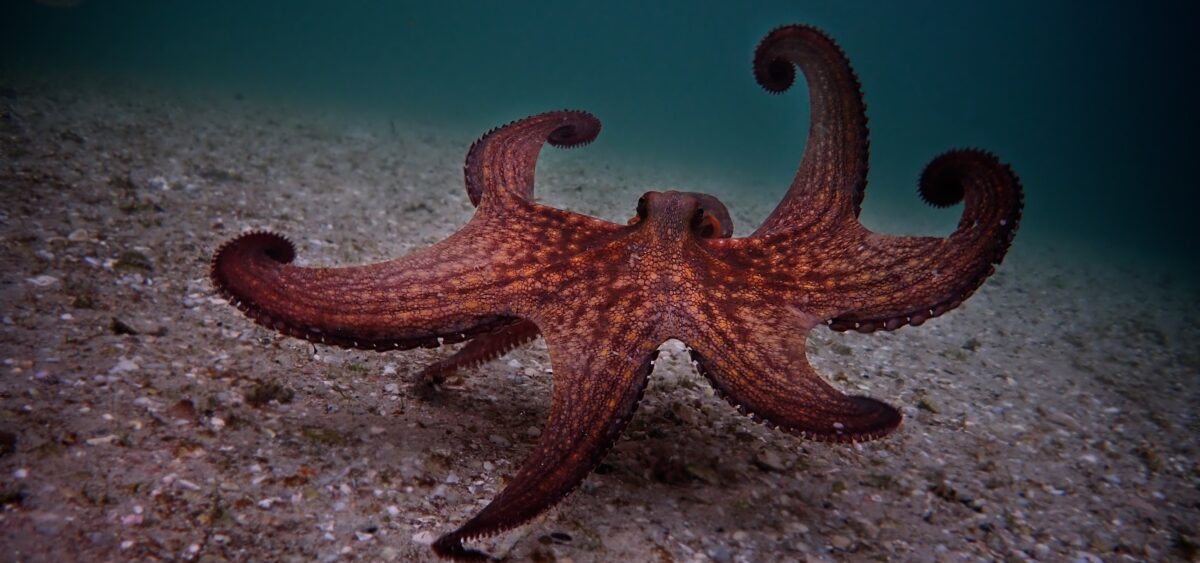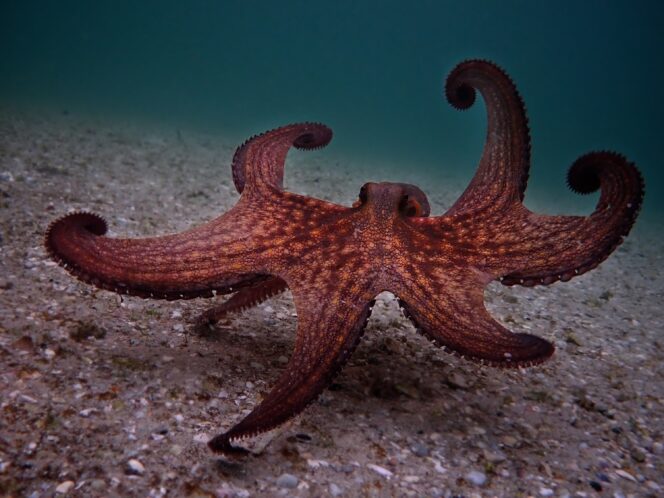
By assuming that thought, language and culture are exclusive to humanity, we have shut ourselves off from non-human experience and knowledge. What if we finally broke away from the old Cartesian division of the world into us and the rest? The humanities make it clear today that we are not the pinnacle of wisdom because there are other modes of cognition, which are no better or worse than ours.
What do cephalopods do when they meet deep in the sea and briefly touch each other’s tentacles? What is the intention of an octopus squirting water on the back of a disliked scientist (as described in Other Minds by Peter Godfrey-Smith, a philosopher of science) and what determines their social preferences? What is the content of mice songs or the choreographic messages expressed by crabs? Why would a chimpanzee mother carry a dead baby on her back for as many as 40 days? Why would she eat a little of her offspring’s body, a portion too small to have any nutritional value? We have no answers to these questions – and will probably not arrive at them any time soon. Although science – humanity’s superpower – is developing rapidly also in the sphere of ethology, the methods it has at its disposal, even the most advanced, are necessarily limited by human perception. Indeed, scientific enquiry is based on a deeply internalized system of concepts and values. In short, human cognition is invariably anthropomorphic, i.e. bound by what our minds and bodies are capable of. Does this mean, however, that the worlds of non-human beings – along with their creative and meaning-making practices – have to remain radically beyond our ken?
This has not always been the case. Myths, poems and dreams store memories of trans-species co-evolution and intimacy with non-human beings. The philosopher Paola Cavalieri points out that certain pre-Socratic Greek thinkers treated animals as their kin and allies, conceiving of something like friendship with them. Empedocles of Akragas (ca. 483–423 BCE) refused to accept the ox that was traditionally offered to victors at the Olympics. Pythagoras (ca. 572–497 BCE) was a vegetarian. It was only Aristotle – the great systematizer of Greek thought – who developed a hierarchical worldview, defending slavery by arguing that some people are naturally servile, a characteristic displayed to an even greater degree by non-humans. In short, European thought emerged by displacing the








